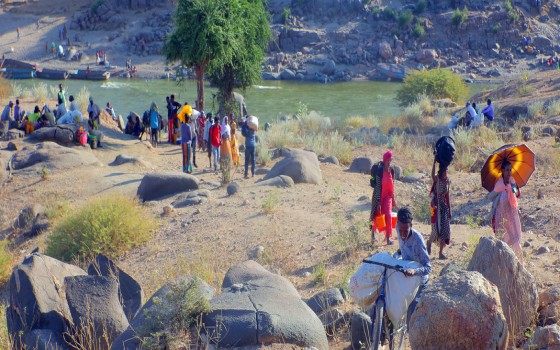
Resource Depletion... 2- Water Waste: An Environmental Challenge Threatening the Sustainability of Life. Prepared by Dr. Abdel Moneim Sedky, Professor at the Agricultural Research Center, Egypt

- Europe and Arabs
- Wednesday , 22 October 2025 3:26 AM GMT
The irrational use of biological and technological resources is one of the most prominent manifestations of individual depletion in the modern era. While resource depletion in the past was limited to water, energy, and food, today the concept has expanded to include new digital resources such as data and digital energy consumed via the internet and smart devices.
This waste represents a combination of poor daily habits, lack of environmental awareness, and easy access to services without realizing the invisible environmental cost of each consumption.
Water Waste
Water is the foundation of life, but it is also one of the resources most threatened by depletion due to unregulated human behavior. Water waste manifests in simple yet repetitive practices, such as leaving the tap running while washing hands or brushing teeth, or using excessive amounts for irrigation, washing, and bathing, without realizing the value of every drop.
It is estimated that the average Arab consumes between 250 and 350 liters of water per day, nearly double the global average recommended for sustainability (approximately 130 liters per day). It is noteworthy that domestic waste constitutes a significant proportion of total national water consumption in many countries.
The environmental, economic, and social dimensions of water waste encompass a range of profound impacts that extend beyond individual use to affect water security, the national economy, and social stability. Environmentally, excessive water consumption leads to the depletion and decline of groundwater reservoirs, disrupting the water balance and affecting the sustainability of freshwater resources. Excessive pumping also leads to deterioration of water quality due to the infiltration of pollutants or saltwater into groundwater. Economically, increasing demand for water forces governments to incur exorbitant costs for desalination, transportation, and treatment, in addition to continuous investment in water infrastructure projects to meet growing needs. Socially, the unequal distribution of water resources exacerbates disparities between urban and rural areas, with cities often receiving better supplies than remote agricultural areas. This creates a sense of water injustice and increases the likelihood of local and regional conflicts over water rights. This makes rationalizing water consumption an environmental, economic, and social necessity. The transition towards rational water consumption requires building a new societal environmental awareness based on recognizing the value of this vital resource and the need to preserve it for future generations. This can be achieved by integrating the concepts of rationalization and environmental responsibility into educational curricula and media, contributing to instilling a culture of water conservation from the early stages of development. Adopting water-saving technologies—such as drip irrigation systems in agriculture and the use of energy-efficient household appliances—is also a pivotal step in reducing waste and achieving efficient use. In addition to awareness-raising and technical aspects, a gradual reconsideration of water pricing policies represents an effective tool for encouraging consumers to use water wisely. Pricing links consumption to the actual environmental cost, enhancing individuals' sense of responsibility toward limited resources and contributing to sustainable water management.












No Comments Found